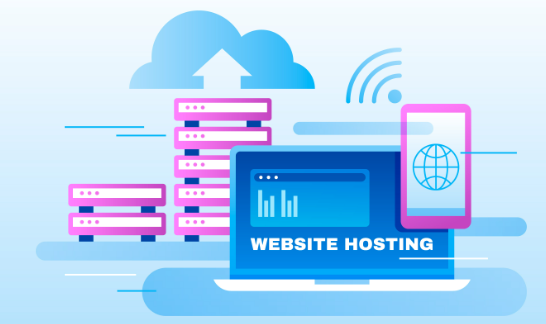If you’re planning to launch a website using WordPress, your hosting choice is one of the most critical decisions you’ll make. While WordPress itself is user-friendly and powerful, your WordPress hosting provider determines how fast, secure, and stable your website will be. From site performance to uptime, support, and scalability, your host plays a massive role in your site’s long-term success.
In this guide, we’ll break down everything you need to know about choosing the best hosting for WordPress in 2025. Whether you’re running a blog, business site, or WooCommerce store, this article will help you make an informed decision.
Why the Right WordPress Hosting Matters
Choosing the best WordPress hosting isn’t just about price. It’s about ensuring your site loads quickly, stays online consistently, and is secure from cyber threats. A good hosting provider also gives you access to essential features such as backups, customer support, SSL certificates, and scalability options.
Here are some reasons why your choice of hosting matters:
Speed: A faster website means better SEO and user experience.
Security: Built-in firewalls, DDoS protection, and malware scanning are essential.
Reliability: A 99.9% uptime guarantee ensures your site is always accessible.
Support: Access to WordPress-specific customer support can be a lifesaver when issues arise.
Types of Hosting for WordPress
Before you pick a provider, it’s important to understand the types of hosting available and how they impact your WordPress site.
1. Shared Hosting
Shared hosting is the most budget-friendly option and a popular starting point for beginners. With shared hosting, multiple websites reside on the same server and share resources.
Pros:
-Very affordable (plans start as low as $2.99/month)
-Great for small blogs or static sites
Cons:
-Slower performance under high traffic
-Limited control and scalability
-Can be vulnerable if other sites on the server are compromised
-Popular providers: Bluehost, HostGator, Namecheap
2. Managed WordPress Hosting
Managed WordPress hosting is optimized specifically for WordPress. These hosts handle server-level tasks such as updates, backups, and security so you can focus on content and growth.
Pros:
-Fast, secure, and optimized for WordPress
-Automatic backups and core updates
-Expert WordPress support
Cons:
-More expensive than shared hosting
-Limited control in some environments
-Popular providers: Server Gigabit, MWDHosting, Kinsta, WP Engine, SiteGround
3. VPS Hosting
Virtual Private Server (VPS) hosting provides more power and flexibility than shared hosting. You get a dedicated portion of server resources, ideal for medium to high-traffic sites.
Pros:
Better performance than shared hosting
More control over server configurations
Cons:
-Requires technical knowledge
-Higher cost
-Popular providers: Server Gigabit, MWDHosting, A2 Hosting, InMotion Hosting, Cloudways
4. Cloud Hosting
Cloud hosting offers scalable resources on-demand and is perfect for growing sites or eCommerce stores that need flexibility.
Pros:
-Excellent uptime and reliability
-Pay-as-you-go pricing models
-Easily scalable
Cons:
-Complexity may not suit beginners
-Prices can vary based on usage
-Popular providers: Server Gigabit, MWDHosting, Amazon Lightsail, Cloudways, DigitalOcean
5. Dedicated Hosting
With dedicated hosting, you rent an entire physical server for your website. This is ideal for enterprise websites or massive online stores with very high traffic.
Pros:
-Maximum performance and control
-High security
Cons:
-Expensive (starting from $80/month and up)
-Requires advanced server management skills
-Popular providers: Liquid Web, Hostwinds
Key Factors to Consider When Choosing WordPress Hosting
Now that you understand the types, here are the main factors you should evaluate before picking the best hosting for WordPress:
1. Performance and Speed
Website speed is crucial for SEO and user retention. Look for:
-SSD storage
-Built-in caching
-Content Delivery Network (CDN) integration
Many WordPress hosting providers now include performance boosters by default.
2. Uptime Guarantee
Your provider should offer at least a 99.9% uptime guarantee. Downtime means lost visitors, missed sales, and reduced SEO performance.
3. WordPress-Specific Support
Not all hosting support is created equal. Choose a provider that offers:
-24/7 support via live chat or phone
-WordPress-trained staff
-Quick issue resolution time
4. Security Features
WordPress is frequently targeted by hackers. Ensure your host offers:
-Free SSL certificates
-Daily backups
-Malware scanning and removal
-DDoS protection
5. Easy WordPress Installation
Many hosts offer 1-click WordPress installs, pre-configured environments, or even fully managed installations. This is especially helpful for beginners.
6. Scalability
As your website grows, your hosting should grow with you. Look for hosts that allow easy upgrades to VPS or cloud plans.
7. Pricing and Renewal Costs
Introductory offers may be cheap, but always check renewal prices. Some hosts offer deep discounts for the first year, then significantly raise rates.
📌 Top WordPress Hosting Providers in 2025
| Provider | Type | Best For | Starting Price |
|---|---|---|---|
| Bluehost | Shared/Managed | Beginners & Small Blogs | $2.95/month |
| SiteGround | Managed/Shared | Performance and Security | $3.99/month |
| Kinsta | Managed (Cloud-based) | High-speed Business Sites | $35/month |
| WP Engine | Managed | Agencies and Professional Blogs | $20/month |
| Cloudways | Cloud VPS | Developers and Scaling Projects | $12/month |
| ServerGigabit | VPS/Cloud Hosting | Speed & CN2 GIA Optimization | $3.80/month |
| MWDHosting | Shared/Reseller/VPS | Budget-Friendly Multi-site Use | $1.99/month |
Final Thoughts
The most suitable WordPress hosting depends on your websites dimensions, traffic and intentions. As a beginning, it can be all right to use shared hosting. However, managed WordPress hosting or cloud hosting is the more preferable investment in terms of better performance, security and scale.
Consider other characteristics of the provider such as uptime, customer support, enhancement of performance, and security equipment before settling. And do not forget the cheap hosting is not the best housing. Focus more on long term value rather than price.

